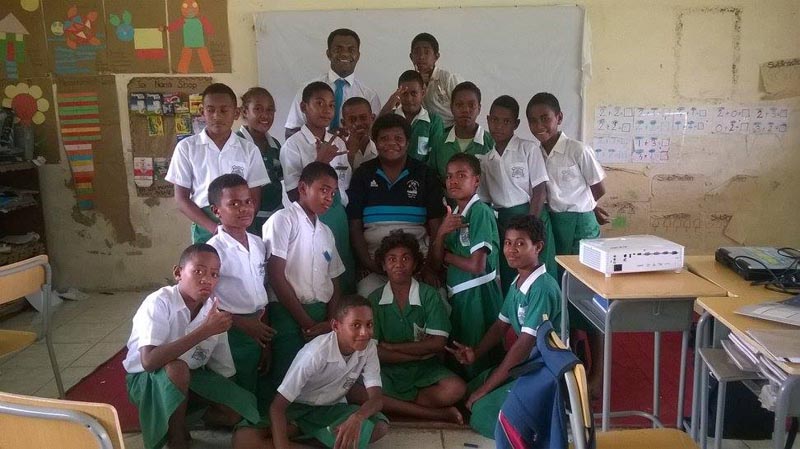Since the inception of the Mamanuca Environment school program, teaching natural science and island conservation in classrooms is a positive way to impart knowledge more effectively to the island children in the region.
Assessing how best to teach island children is unique and quite challenging. Studying nature and conservation is no longer restricted to a classroom setting for the participating schools. Interacting with children studying marine life on the beach, talking about the importance of forestry and walking through a dry forest area are more effective learning measures in ensuring the concept of conservation is well received and understood by the students.
According to Mrs Vakacola, former school teacher after graduating from USP states that “It makes the class more interactive, fun and interesting”. “The program has integrated new learning strategies in our weekly programs with each theoretical class followed by a practical component” she added. “Understanding better the Ridge to Reef conservation concepts requires a more practical component,” said Mrs Vakacola, MES Project Manager. This will allow the students to observe the beauty of nature while learning to appreciate its uniqueness, its importance and contribution to Fiji’s biodiversity”. Through this program, MES was fortunate to engage government representatives to present on different topics with the approval from the Ministry of Agriculture- Extension Unit Nadi, they facilitated on the Land-use management topic for the three schools.
The objective of the class is to understand and know the importance of managing our land. Mrs Iva Buitini highlighted that our Land provides us with a lot of our needs from food, money, house and most importantly defining where we come from – identity. The different classification of soils in Fiji was described to the students from Soil type 1 – 8 respectively. The good farming techniques to improve soil fertility from Crop rotation, Shifting cultivation, Agro-forestry, Contour planting, use of vetiver grass to prevent soil erosion. Moreover, addressing human activities that alter the soil structure and fertility of soil e.g.: use of heavy machinery, up & down cultivation, use of excessive fertilizers, burning and cutting down of trees. “The lecture was really informative and easy to understand, “said Maciu Bolanilau, Year 7 student of Malolo District School.
Solid and Liquid Waste management topic was further elaborated with the Nadi Town Council officers Premila Chandra and Nafiza Ali. Also, highlighting the different categories of waste, defining waste and waste management and effects of waste disposal during the presentation. Also addressed are the components of clean school program through Environmental Awareness raising, school composting with rubbish separation and recycling. “It’s important that the participating schools already have the system but just need enhancement and enforcing” stated Nafiza Ali of Nadi Town Council.
MES will continue with the program into Term 3 and work with other organizations, government agencies for the remaining topics as this will boost the morale of students in Environment education and promoting awareness to their respective communities as a whole. The new program is being trialed out with year and post test and evaluation of each Term coverage will assist the team improve on program in future.


